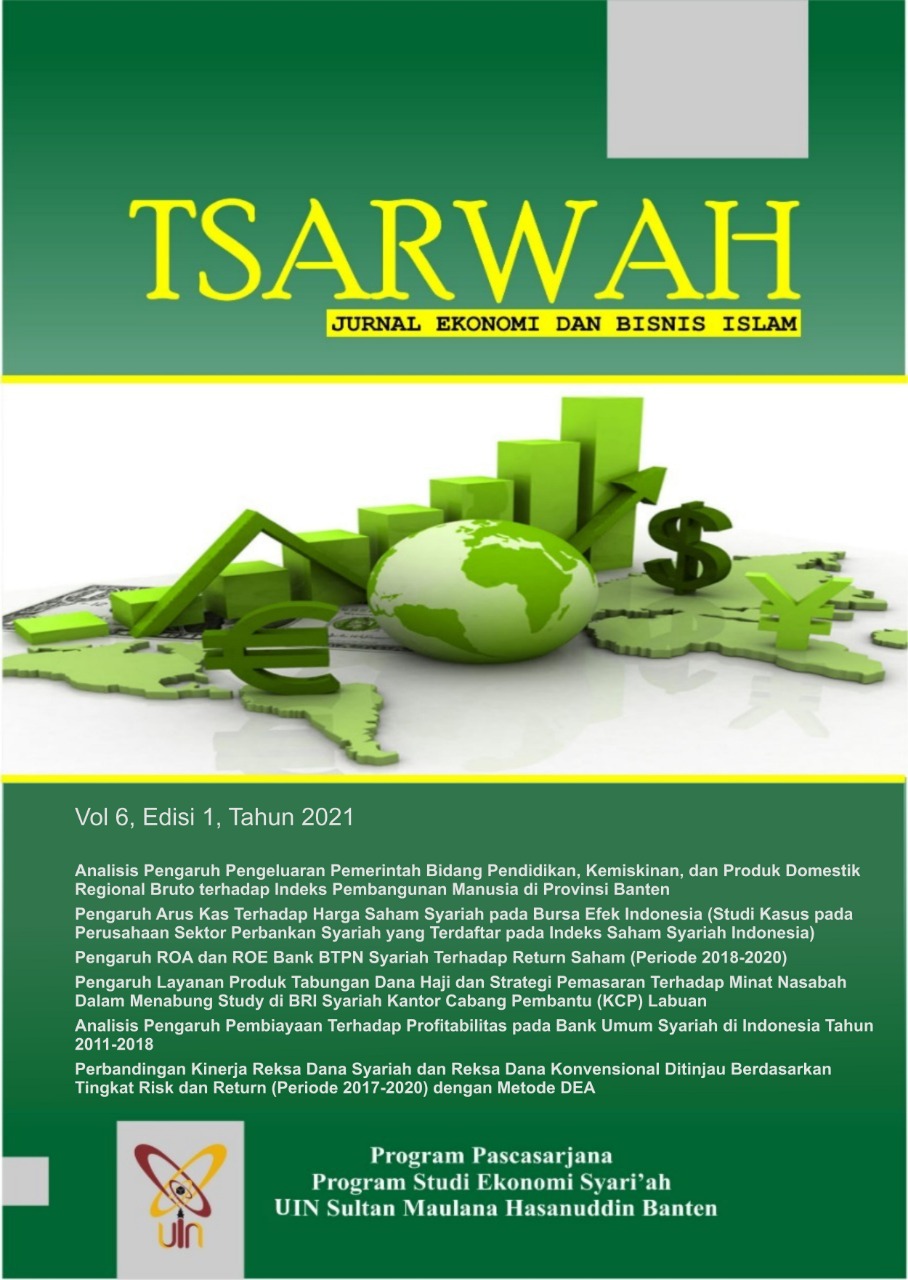Performance Comparison of Sharia Mutual Funds and Conventional Mutual Funds Based on Risk and Return (2017–2020 period) Using the DEA Method
DOI:
https://doi.org/10.32678/tsarwah.v6i1.6733Keywords:
Reksa dana syariah, Reksa dana konvensional, Return, RiskAbstract
Investment managers use mutual funds as a platform to gather money from the investor community, which is then invested in securities portfolios. The goal of the study is to compare the performance of sharia mutual funds and conventional mutual funds in terms of risk and return levels from 2017 to 2020. Microsoft Excel and software frontier analysis are used in this study to compare performance effectiveness using the Data Envelopment Analysis (DEA) method. According to the study's findings, both conventional and sharia mutual funds had a performance efficiency of 100% in 2017. In 2018, the performance of mutual funds was generally inefficient, but the performance of conventional mutual funds was more efficient than the performance efficiency of Islamic mutual funds, with a ratio of 33.90%: 29.60%. In 2019, Islamic mutual funds and conventional mutual funds both have inefficient scores, but sharia performance is more efficient than conventional, with a ratio of 80.00%: 13.20%. The two mutual funds will then have 100% performance efficiency in 2020.
Downloads
Downloads
Published
Versions
- 2023-11-03 (3)
- 2022-12-28 (2)
- 2022-09-05 (1)
Issue
Section
License
Copyright (c) 2021 Ipat Fatmawati

This work is licensed under a Creative Commons Attribution-ShareAlike 4.0 International License.



























